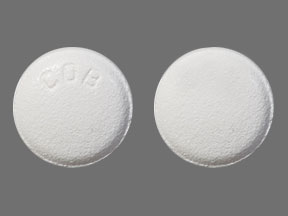Cobimetinib Interactions
There are 406 drugs known to interact with cobimetinib, along with 7 disease interactions, and 1 alcohol/food interaction. Of the total drug interactions, 124 are major, 281 are moderate, and 1 is minor.
- View all 406 medications that may interact with cobimetinib
- View cobimetinib alcohol/food interactions (1)
- View cobimetinib disease interactions (7)
Most frequently checked interactions
View interaction reports for cobimetinib and the medicines listed below.
- Activated Charcoal (charcoal)
- Adderall (amphetamine / dextroamphetamine)
- Calcium 600+D Plus Minerals (multivitamin with minerals)
- Co-trimoxazole (sulfamethoxazole / trimethoprim)
- Coenzyme Q10 (ubiquinone)
- Compazine (prochlorperazine)
- Copper (copper gluconate)
- Dextrose (glucose)
- Diamox (acetazolamide)
- Diltiazem Hydrochloride SR (diltiazem)
- Emla (lidocaine / prilocaine topical)
- Ethyl Alcohol (ethanol)
- Glycerol (glycerin)
- Granix (tbo-filgrastim)
- Halaven (eribulin)
- Heparin Sodium (heparin)
- Iodides (sodium iodide)
- L-Arginine (arginine)
- L-Carnitine (levocarnitine)
- L-Cysteine (cysteine)
- Lexapro (escitalopram)
- Lithium Carbonate ER (lithium)
- Lomotil (atropine / diphenoxylate)
- Metamucil (psyllium)
- Metoprolol Succinate ER (metoprolol)
- Metoprolol Tartrate (metoprolol)
- MetroGel (metronidazole topical)
- Milk of Magnesia (magnesium hydroxide)
- Quercetin (bioflavonoids)
- Vitamin D3 (cholecalciferol)
Cobimetinib alcohol/food interactions
There is 1 alcohol/food interaction with cobimetinib.
Cobimetinib disease interactions
There are 7 disease interactions with cobimetinib which include:
- cardiomyopathy
- hepatotoxicity
- ocular toxicities
- rhabdomyolysis
- lung toxicity
- liver dysfunction
- renal impairment
More about cobimetinib
- cobimetinib consumer information
- Compare alternatives
- Side effects
- Dosage information
- During pregnancy
- Drug class: multikinase inhibitors
- Breastfeeding
- En español
Related treatment guides
Drug Interaction Classification
| Highly clinically significant. Avoid combinations; the risk of the interaction outweighs the benefit. | |
| Moderately clinically significant. Usually avoid combinations; use it only under special circumstances. | |
| Minimally clinically significant. Minimize risk; assess risk and consider an alternative drug, take steps to circumvent the interaction risk and/or institute a monitoring plan. | |
| No interaction information available. |
See also:
Further information
Always consult your healthcare provider to ensure the information displayed on this page applies to your personal circumstances.


